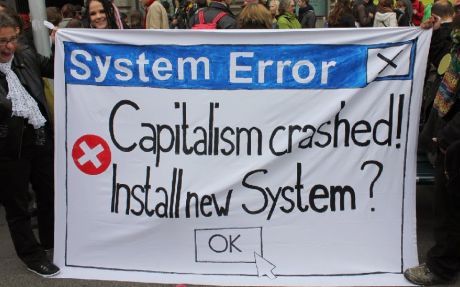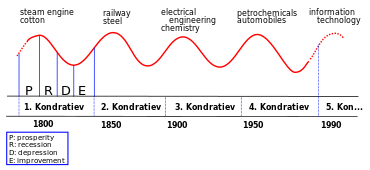For most people, including many well-known economists, the 2007 global economic crisis was a rude awakening: It seemed to have come out of nowhere, but it certainly managed to  bring deep pain to billions of people – and pockets. Soon thereafter, calls to revisit Marx’s theory of capitalism became frequent from both left and right. After all, it seemed he had a plausible explanation for what had just happened.
bring deep pain to billions of people – and pockets. Soon thereafter, calls to revisit Marx’s theory of capitalism became frequent from both left and right. After all, it seemed he had a plausible explanation for what had just happened.
Nine years later we all can easily agree that capitalism has not collapsed – at least not yet. But has it reach its limits? The latest book by Paul Mason tries to answer this question. And in simple terms his answer is yes. Indeed, he argues that capitalism unique adaptation skills to almost any situation have now stalled. And the rapid development of new technologies have opened the door for the emergence of a new and more dynamic post-capitalist society.
Mason proposes a rather unique conceptual framework to advance his argument. He makes use of Kondratieff’s long waves of capitalist development alongside Marx’s theory of crisis.((Mason also has a detailed defense of Marx’s Labor Theory of Value which is indeed rare in this day and age.)) After detailing each of these perspectives in separate chapters, Mason argues that Kondratieff’s long wave of the 20th century started to fail in the  early 1970s with the oil crisis and ensuing financial depression.
early 1970s with the oil crisis and ensuing financial depression.
By 1980, the emergence of neo-liberalism accentuated such failure, alongside the demise of worker’s resistance which allowed “capitalist countries to find a solution to the crisis through lower wages and low-value models of production. This is the fundamental fact, the key to understanding everything that happens next” (pg. 93). Almost simultaneously, new technologies started to challenge the status quo by capitalizing on information and knowledge and introducing “free, abundant socially produced goods” (pg. 144).
With this in hand, the author then defines post-capitalism as project zero “because its aims are a zero-carbon energy system; the production of machines, products and services with zero marginal costs; and the reduction of necessary labor time as close as zero as possible” (pg. 266). He then outlines five principles to bear in mind and four top-level goals that need to be achieved to ensure success. A project plan that includes 8 topics is suggested at the end of the book, along a call for the liberation of the 1% by the other 99%!
All in all, we end up with yet another techno-utopian perspective backed this time by non-standard economic theory and detailed historical analysis. What does not seem to be very clear in Mason’s discussion is the human agency and capacities that will be need to accomplish the task at hand. And Mason does place too much emphasis on the role of new technologies and sees them as driving the post-capitalist revolution. Let us sit and wait then…
Mason, Paul. 2015. Postcapitalism: A Guide to Our Future. New York: Farrar, Strauss & Giroux. ISBN: 978-0-374-23554-3.

